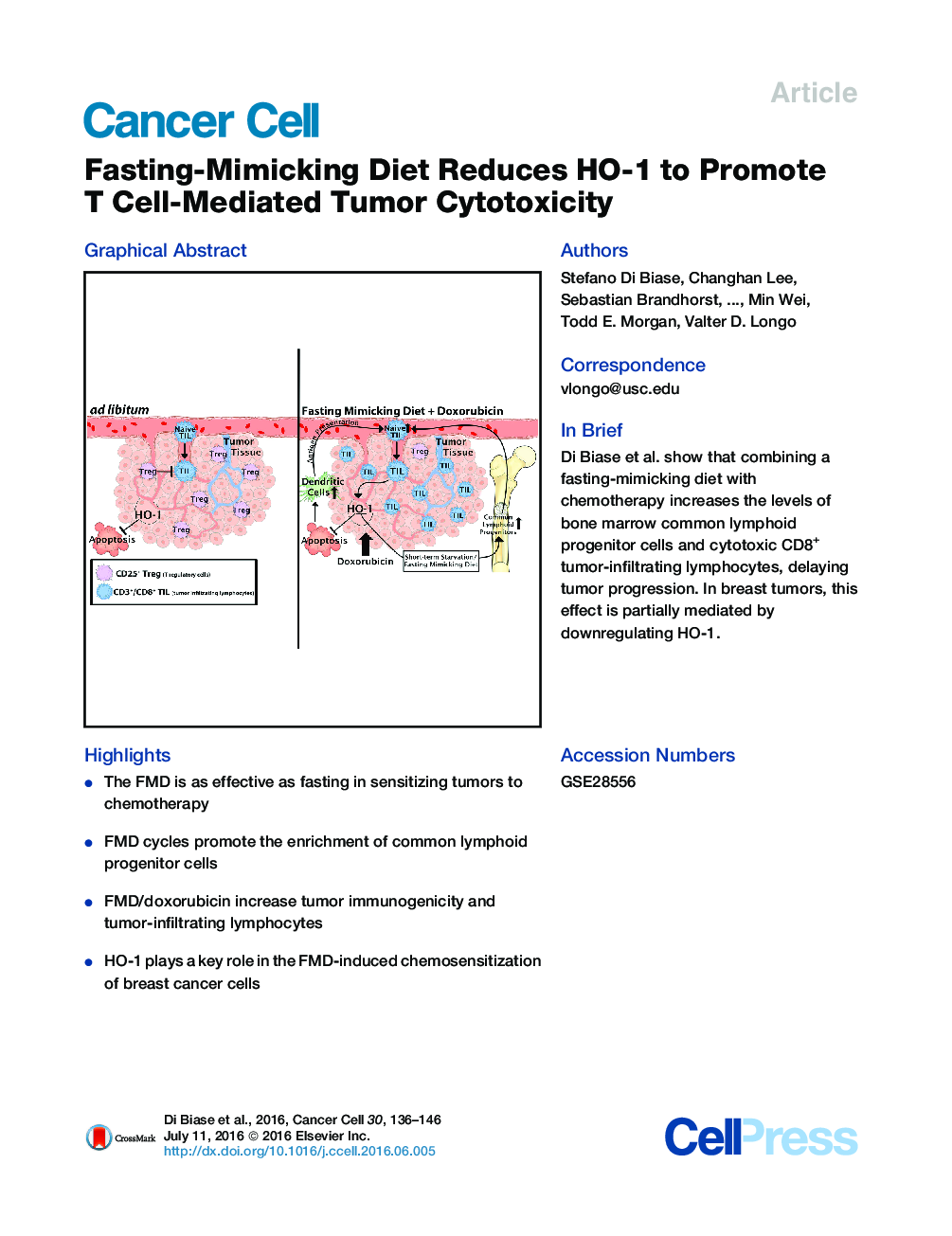| کد مقاله | کد نشریه | سال انتشار | مقاله انگلیسی | نسخه تمام متن |
|---|---|---|---|---|
| 2106710 | 1083620 | 2016 | 11 صفحه PDF | دانلود رایگان |

• The FMD is as effective as fasting in sensitizing tumors to chemotherapy
• FMD cycles promote the enrichment of common lymphoid progenitor cells
• FMD/doxorubicin increase tumor immunogenicity and tumor-infiltrating lymphocytes
• HO-1 plays a key role in the FMD-induced chemosensitization of breast cancer cells
SummaryImmune-based interventions are promising strategies to achieve long-term cancer-free survival. Fasting was previously shown to differentially sensitize tumors to chemotherapy while protecting normal cells, including hematopoietic stem and immune cells, from its toxic side effects. Here, we show that the combination of chemotherapy and a fasting-mimicking diet (FMD) increases the levels of bone marrow common lymphoid progenitor cells and cytotoxic CD8+ tumor-infiltrating lymphocytes (TILs), leading to a major delay in breast cancer and melanoma progression. In breast tumors, this effect is partially mediated by the downregulation of the stress-responsive enzyme heme oxygenase-1 (HO-1). These data indicate that FMD cycles combined with chemotherapy can enhance T cell-dependent targeted killing of cancer cells both by stimulating the hematopoietic system and by enhancing CD8+-dependent tumor cytotoxicity.
Graphical AbstractFigure optionsDownload high-quality image (246 K)Download as PowerPoint slide
Journal: - Volume 30, Issue 1, 11 July 2016, Pages 136–146